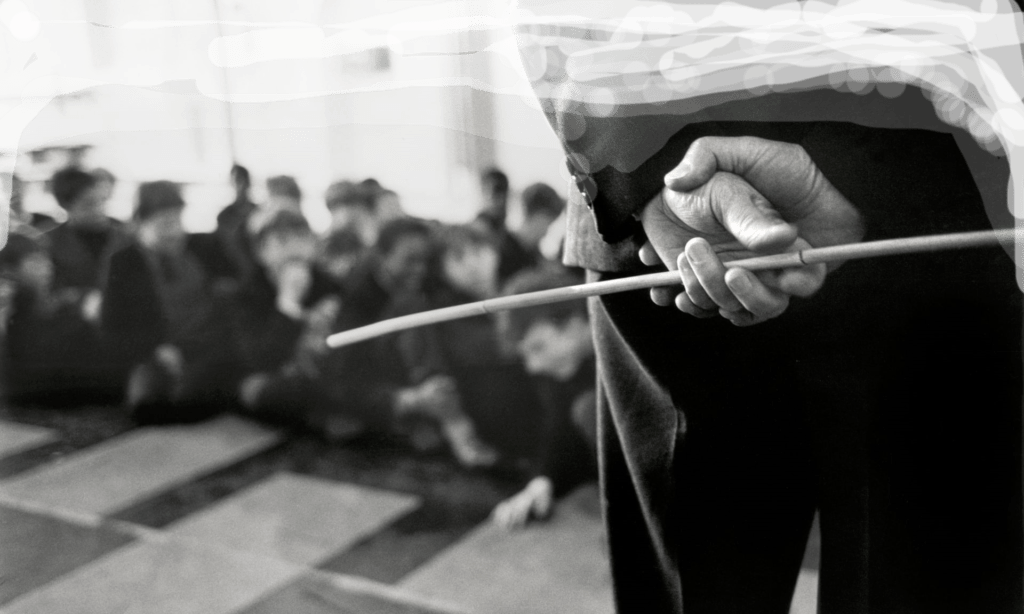Art is nothing but the expression of our dream; the more we surrender to it, the closer we get to the inner truth of things, our dream-life, the true life that scorns questions and does not see them. Franz Marc.
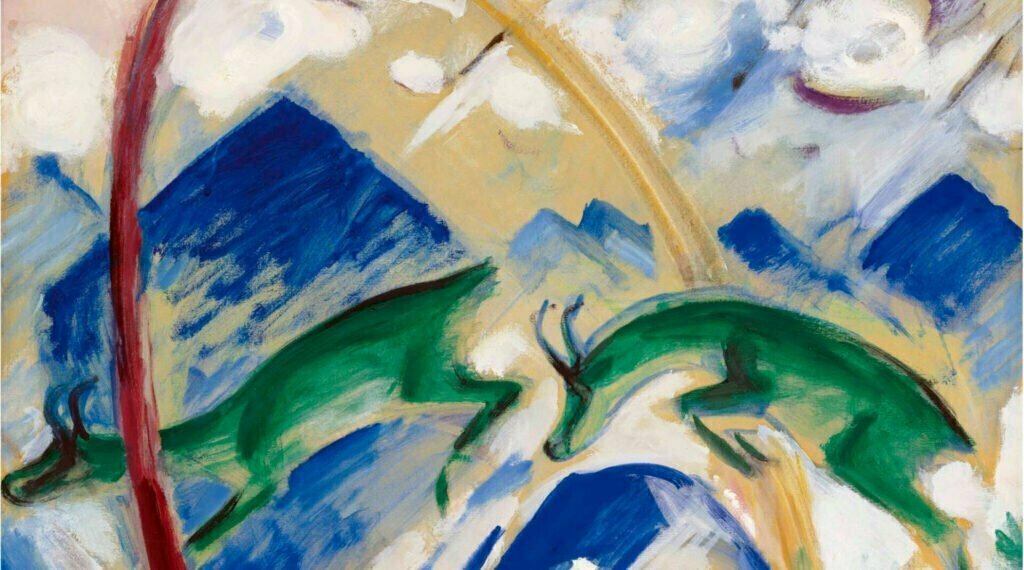
An ice age can last hundreds of millions of years. When that age appears to have passed, the motion and movement left in its wake continues, affecting geographical and biological stratospheres, an ongoing process corresponding to and informing Earth’s activity, in this all-inclusive, all-encompassing, present.
As recently as 2016, a carbon dating of bones excavated in County Clare, Ireland, confirmed that humans had hunted, slaughtered and cooked a brown bear. To date, these are the earliest known findings of human habitation in Ireland. Carbon dated between 10860 and 10641 BC, these readings suggest our male and female counterparts crossed a glacial land-bridge, linking south-west England to south-east Ireland, during the last ice age. Were these people who traversed the ice from England to Ireland back in the Palaeolithic era, the root of Irish descent? If so, who were their forebears?
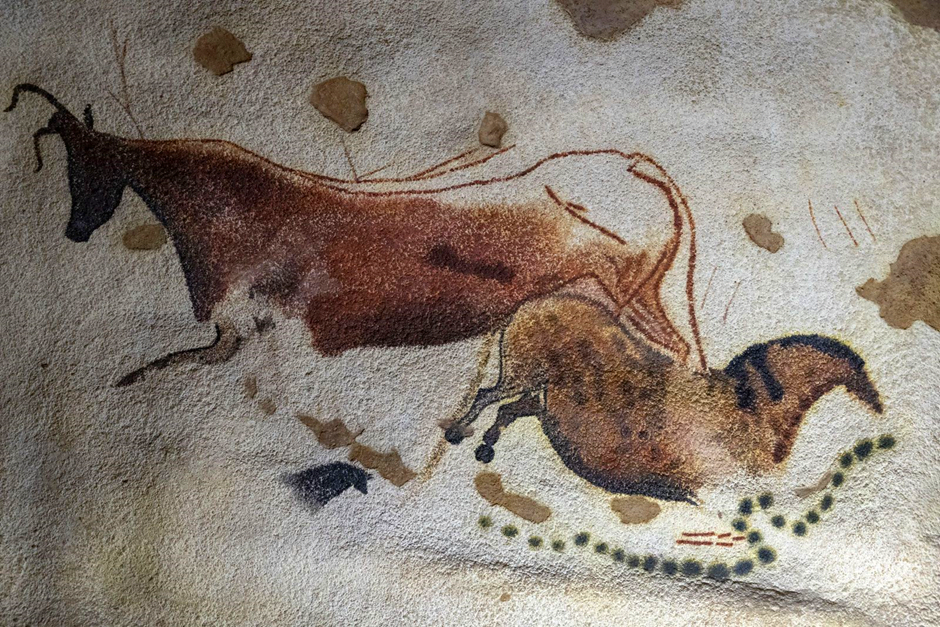
Do the paintings found in a complex of caves in the Dordogne region of southwestern France tell us of a cultured person in deification and wonder of life? Is their apparent artistic dexterity, thought to be around 17,000 years old, reminiscent of the great painters and printmakers such as Franz Marc and Pablo Picasso coincidental? Were these cave painters aware of leaving such a marked trail? Where did their journey begin? Don’t ask questions, marvel the beast then paint the picture.
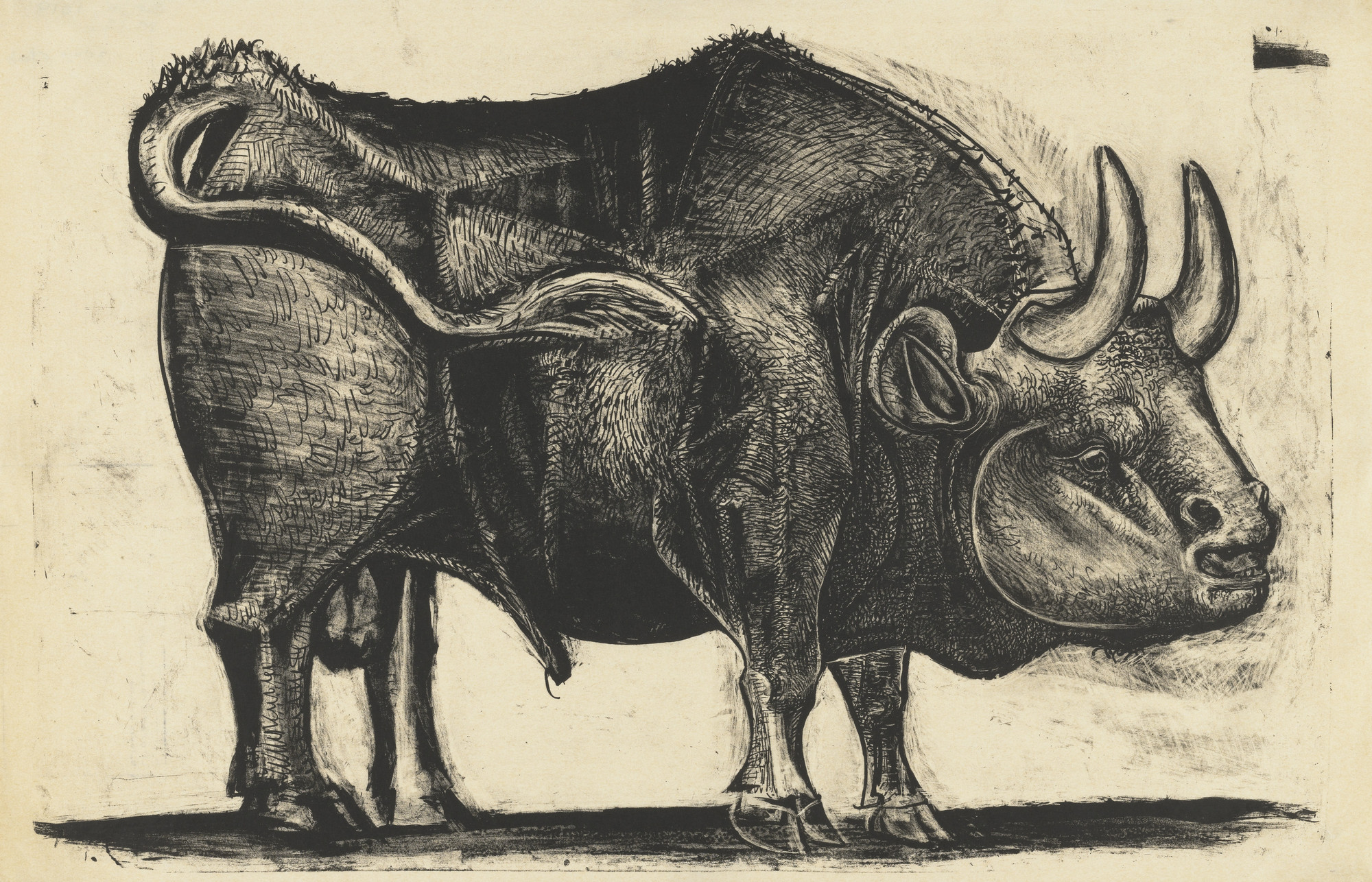
A recent discovery of stone tools, unearthed on the coast of Norfolk, was carbon-dated to reveal a human presence between 950,000 and 700,000 years ago. Were these ancestors the first of us to settle in England? Wherever they came from, they stayed in the area until the animals grew weary, the berries and root vegetables scarce. When the resources run thin, do or die, these hunter-gatherers, compelled to seek food further afield, move on, out of the immediate wilderness into the next. Were they following a migratory path? Did they walk from continental Europe over the land that was to Britain and onwards toward Ireland? We may not qualify or quantify their journey; with the invention of radiocarbon dating in 1946, we have a genuine sense of who they were and their incredible ability to survive.
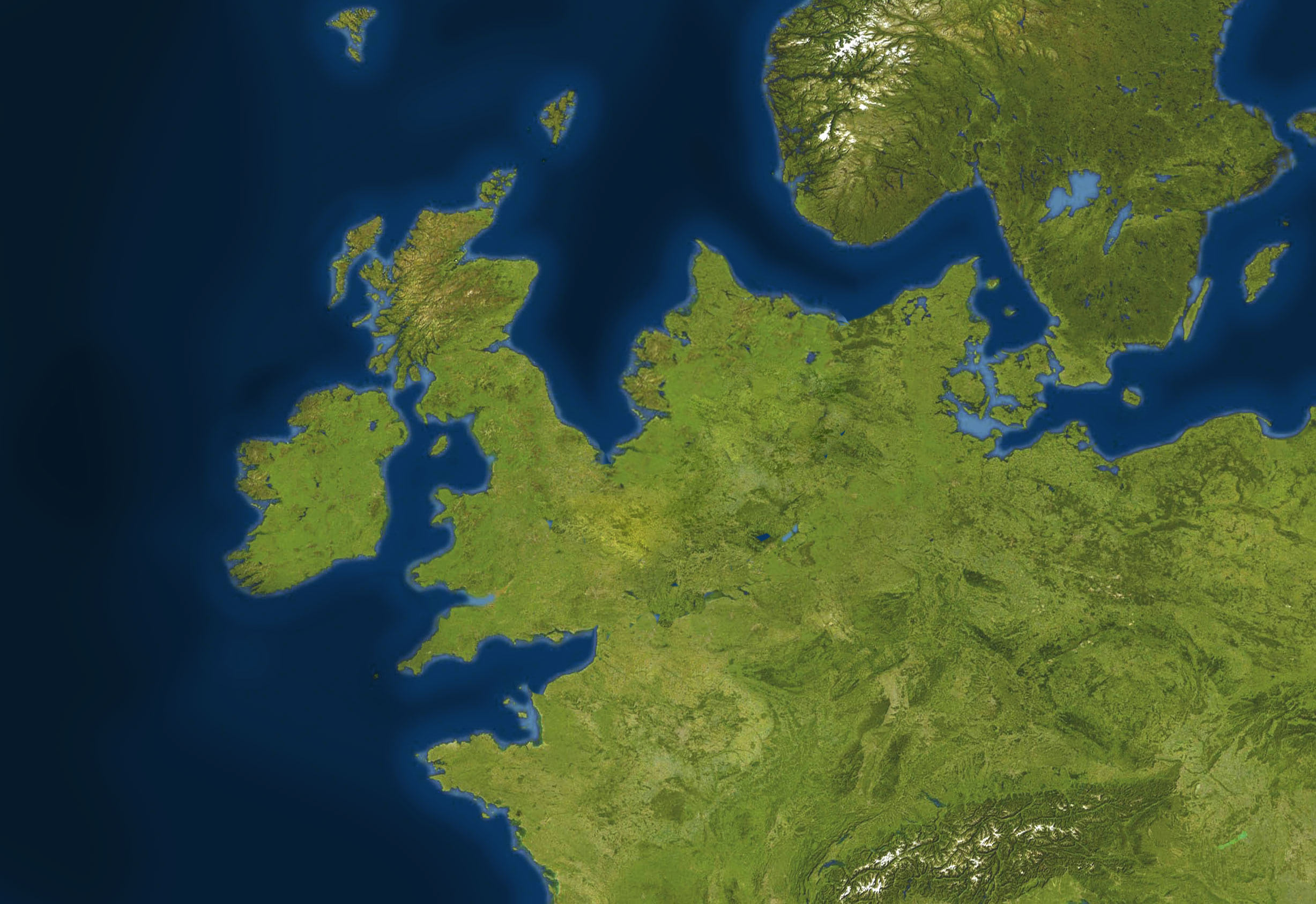
With the instruments of science now, it is possible to analyse and collect data from Earth’s formation and structure, which tell us of ages preceding the Triassic and Jurassic period, an eternity before humans. This data tells how such ages, way back in the annals of time, shapes, and informs the World’s course as it makes its way through space now.
Billions of years ago, a reflex action creates waves of actions and reactions that make the first known ice age. This epoch rebounds successively, with an infinite amount of actions and reactions that flow, mould, shape and inform the earth’s existence as it spins on its axis and revolves around the Sun today. Likewise, and to lesser or greater degrees every other age, every creature, animal, plant, insect, right down to subatomic molecules create and created by a continuing process of cause and effect — galaxy upon galaxy, a universe within a universe, forming and informing, life after death, death after life, composing and decomposing in everlasting, all-encompassing…..
The process of plate tectonics continues to shape the Earth’s continents and oceans and the life they harbour. Intrinsic analysis of particles and mineral, found in rocks, fossils and sediment, determines the formation of Earth at 4.6 billion years. The earliest evidence of life-forms begins 1.1 billion years later. Fossils of vertebrate appear in the 665-million-year-old rocks of the Trezona Formation of South Australia. One of the earliest known humans is Homo habilis, or “handy man,” who lived about 2.4 million to 1.4 million years ago in Eastern and Southern Africa. The entire history of humankind is but a miniscule fraction on the timescale of the planet.

In human sophistication and purpose — my world, your planet, our galaxy, their age, my lifetime, our land and so on — it might seem as we have an overall rule of law, ownership, over and above existence. Objectifying actuality, in the same way, we fix ideas, materials and money in place — to make or break life according to our image. In just a few hundred years, humankind has taken the planet to the brink of destroying what has taken some 4.6 billion years to make. Damaging the biosphere, the Earth’s surface, hydrosphere, and atmosphere with the loss of wild lands, over-exploitation of the oceans, production of greenhouse gases, degradation of the ozone layer, and general degradation of soil, air, and water quality. Easy to speak of such things, uneasy to fathom.
When pinned to the banks of existence, we eke out a living or sink with the flow. Filtered and made up to the tune of an image, we bow in thanks to a god, a puppet master who we believe pulls all the strings. A useful premise that excuses us from any real responsibility.
The man in the sky breaches the underbelly of clouds with a blow. Leaving us with our darkest fears. Nothing left to do but survive. Stake a claim, or go the way of the dodo.
With or without our belief systems, conquest represents the bulk of what it means to be human. Keeping ahead of the clock, lifestyles under fire, setting out boundaries, filtering out the dregs. How else would we rise to meet the best of person kind? A loaded and sarcastic question that so many of us now have in common.
Our representatives, leaders, and companies sit around the table to negotiate the lot on offer. The more prolific the product, the greater need there is for resources to feed the result. Who sustains, who deprives, determines those who have the most leverage and those who survive. Who are we if we are not of country and family dependent on Earth in kind? What is Earth, if starved of biodiversity and ethical husbandry?
If history doesn’t overwhelm us, the plague might, then do we accept lockdown as the end of life? Of course not! Bells and whistles on the outside are nice, but humans don’t make the trees grow, a kingfisher glide to swoop, the stream to gurgle like a baby, or the sun to light up the day. Here for such a sweet short time, rather than leave for mars, put our money where our mouth is, nurture nature to thrive so that those who come after might survive. Do we run from what has gone before, seeking hope with some imagined absolution in the future, or step off the angelic, demonic carousel and work to blossom, a human being over the human doing?
Doing, making, inventing, creating, gives us a measure of our earthborn brilliance, generating comfort and health unimagined not that long ago. And the more we measure ourselves in terms of wealth and wellbeing, we increasingly see the purpose of human life in this light alone. The main reason for our earth born presence continues to commodify our surroundings, an opportunity to buy, swap and control nature for a place we have in mind on the morrow. With power and wealth, you not only exist, but become revered and admired, too. We buy it. Learn the lesson and we learn the lesson well. Condition, bamboozled, cajoled, the led lead and followers follow. Gilded power takes prominence over human nature and we cease to exist.
Our clambering to make that mark has a significant knock-on effect, perhaps more now than we ever realise. The idea you are nobody unless you are somebody, makes a mockery of majority peoples walking this earth. Insignificant as we may feel, we remain kings and queens, imprisoned by our domains. Making a name, becoming significant, must be born of wanting. Clearly, our example set by the imperial civilisations of yesteryear is alive and kicking.
The threat of an alien invasion, broadside, along with the massive increase in population, has become ever more embroiled. You’re right; I’m wrong! Good, now get in line, bigot! Whatever disguise, whichever shape, developed in coming forward, our domination, a tidal wave of given authority, sweeps across millennia, century to century.
From the oldest Empire, Akkadian, to the Vikings, Phoenicians, Greeks, Egyptians, Alexandrians, to Achaemenid, the First Persian Empire, the imperial way set the teachings and beliefs in motion for one person to overrule the other. Our ancestral line, with its autocratic ruling, as you taught us so eloquently all those years ago, is closer to home, well documented, and if we care to look pivotal to our collective coding today.
Celtic people inhabited Briton from the Iron Age through to the Middle Ages, 750 years. Under Julius Caesar’s leadership, the Romans invaded Briton in 54 BC as part of his long-lasting military campaign against the Celts. And after four hundred years of Roman rule came the Normans.
